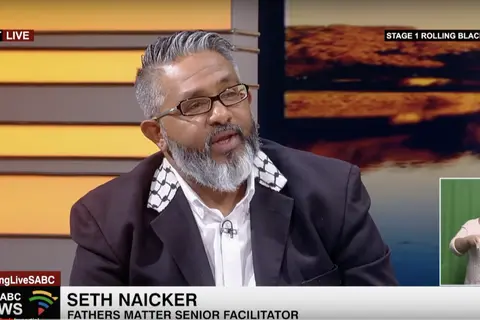Mothers matter in children’s lives, but do fathers?
In the 30 years that I’ve been involved in addressing some of our region’s most pressing health and social issues, including GBV, HIV/AIDS and child abuse, I have never encountered an issue that is as emotionally charged and resonant — with as many people across all sectors of our society — as fatherhood.
For some people, it’s been gratitude for how much their dad’s positive and active presence has shaped their lives. For many more, it’s been about the negative effect his absence has had. For others, he may have been present, but this “presence” has been more a curse than a blessing. There’s the “hide and seek” dad (now you see him, now you don’t); the “ATM” dad, who is present with his money but not his time; the “fly on the wall” dad, who’s physically present but emotionally absent; and the abusive dad, who’s emotionally and/or physically abusive.
Whatever people’s experience of their dads, for most of us, his influence is profound. How he does or does not show up matters to us. But is this just an emotional issue? Does his presence or absence really make any difference to our lives?
It turns out that it does. Local and international research has shown that not having a present father figure increases the risk of children being victims of violence and, when they grow up, becoming perpetrators of violence, including GBV. In the US, over 90% of men in prison for violent crimes come from father-absent homes. Anecdotally, the same is true here. Children are also at greater risk of substance abuse, mental illness, and poor educational and economic outcomes if they don’t have strong father figures at home.

Garth Japhet
Garth is a medical doctor. After having been part of the founding team behind the health promotion and social change project Soul City, in 2002, Garth decided to use the successful recipe of edutainment for change to turn the spotlight onto the universal values that all South Africans profess to share, but are not always evident in the lives they live. That was the beginning of the Mass Media Project, now known as Heartlines. Garth is the CEO and chief ideas man behind the work that we do.
Featured
